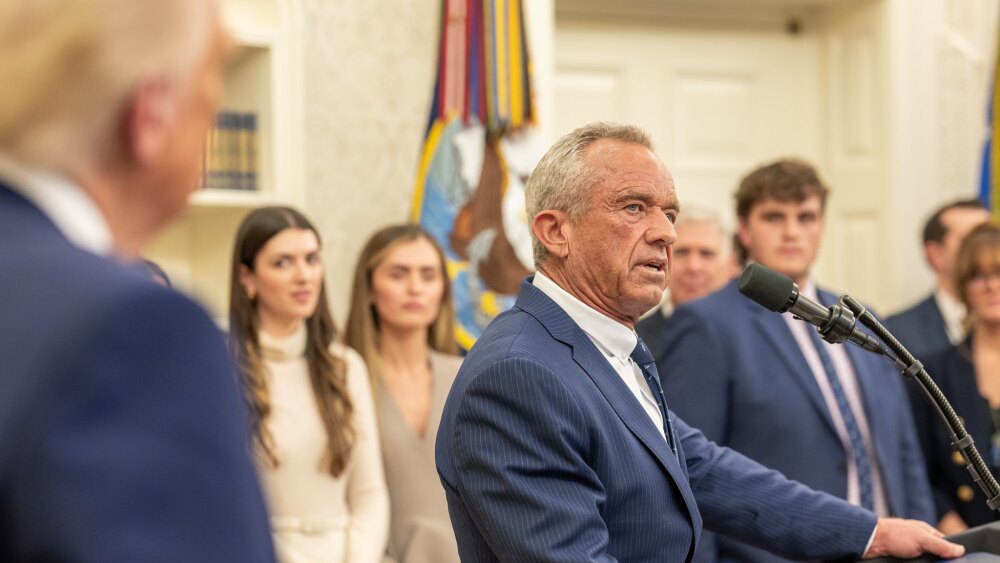The move has sparked concern that the U.S. Preventive Services Task Force could soon be dismissed after a decision by the high court affirmed Health Secretary Robert F. Kennedy Jr.'s power to remove its members at will.
The Department of Health and Human Services has postponed an upcoming meeting of the U.S. Preventive Services Task Force, sparking fears over the committee’s future, according to reporting from CNN published Wednesday.
“There is extraordinary concern,” an anonymous source who was not authorized to speak about the matter told CNN, “that [the task force is about to be dismissed, like ACIP [CDC’s Advisory Committee on Immunization Practices] was.” The postponement of the meeting was communicated by Health Secretary Kennedy’s office to officials on Monday.
The Task Force was supposed to convene on Thursday to discuss matters and recommendations regarding diet, physical activity and weight loss in adults, with a particular focus on behavioral interventions, according to CNN. The U.S. Preventive Services Task Force (USPSTF) meets in person three times per year, though the panel holds frequent virtual meetings.
Wednesday’s news comes after the U.S. Supreme Court last month ruled in favor of the government, upholding the constitutionality of the USPSTF and the validity of its recommendations. The ruling allowed certain preventive therapies, including HIV pre-exposure prophylaxis treatments like Gilead’s newly-approved Yeztugo, to remain on insurers’ mandated coverage list.
But analysts at BMO Capital Markets in a June 26 note called the decision a “double-edged sword,” especially since the ruling affirms HHS’ heavy control over the task force, its composition and its recommendations. The decision, then, gives Kennedy “latitude to decide what is necessary for preventative healthcare,” the analysts added.
Fears regarding an overhaul of the USPSTF follow Kennedy’s recent actions around ACIP. Last month, the Secretary purged all 17 of the committee, a move he said was “necessary to reestablish public confidence in vaccine science.” Kennedy has since reformed the panel but with fewer members, many of whom have documented backgrounds of vaccine skepticism.
More broadly, Kennedy has also launched a sweeping reorganization of the entire HHS, looking to eliminate some 10,000 jobs across the agency and consolidate many of its units.
The HHS will sustain a more than $30 billion hit to its discretionary outlay for the 2026 fiscal year, dropping to $94.7 billion from $126.1 billion in 2025. That budget drop will come from cutting redundancies across the entire department and from streamlining its services, an effort that will see 28 of the agency’s operating divisions slim down to 15. Five of HHS’ “most costly regional offices” will be shuttered.
As for its headcount, HHS aims to thin its workforce to “roughly 90 percent of our pre-COVID staffing level,” as per a budget document released in May.






